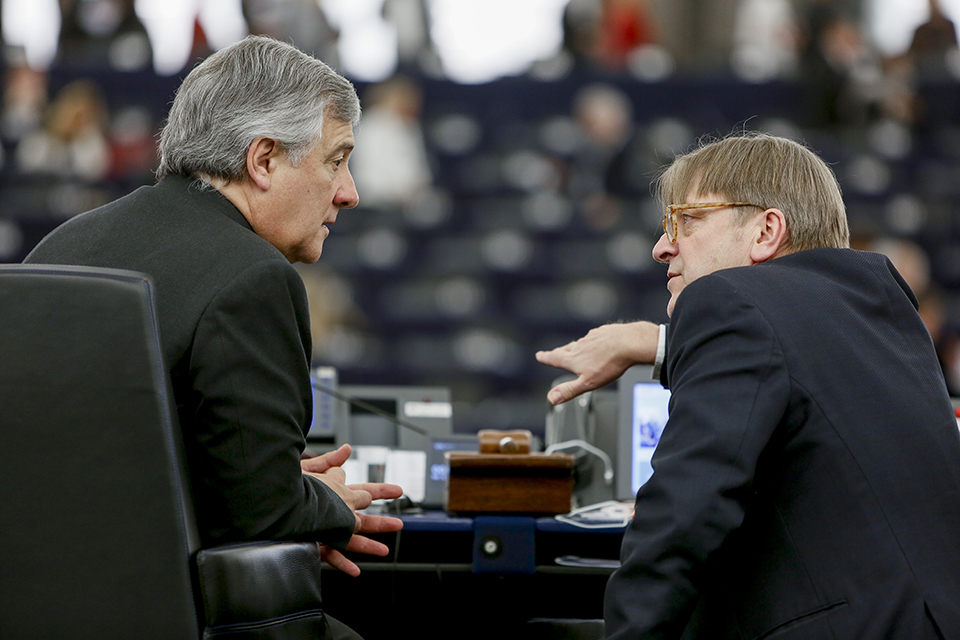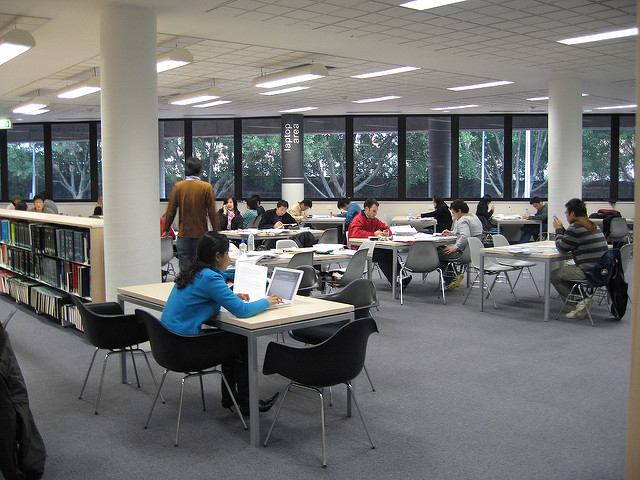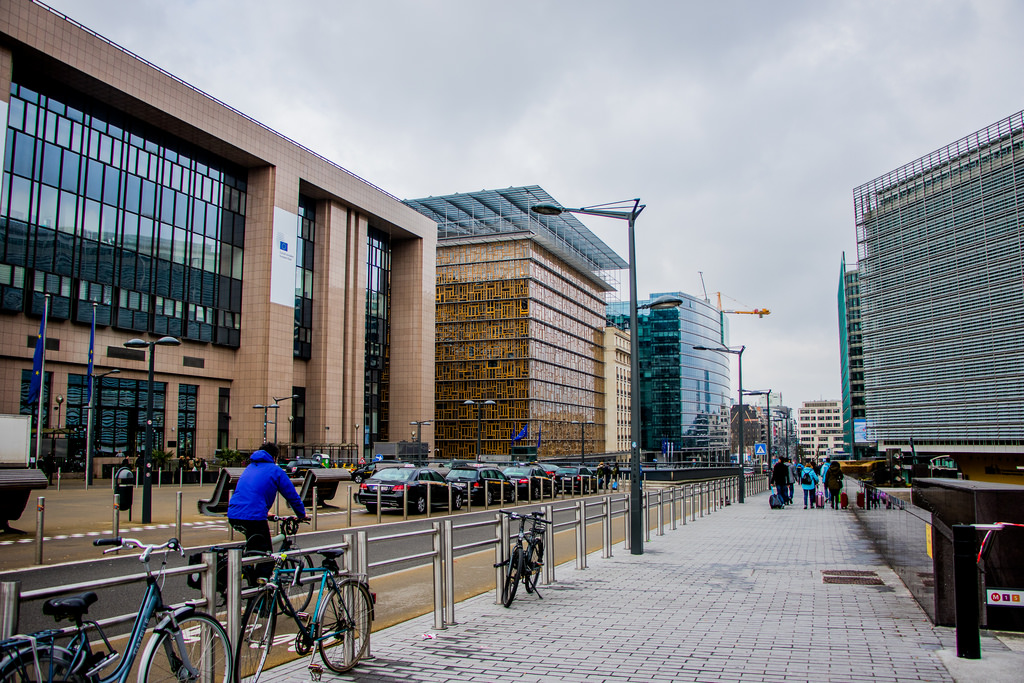Blog
Doru Peter Frantescu is CEO & cofounder of VoteWatch Europe (the most most influential platform among MEPs), as well as a member of the European Alliance for Artificial Intelligence.
Nobel Prize winner Daniel Kahneman’s excellently showcases in his book Thinking, fast and slow why some people get things wrong most of the time: they rely solely on “fast (un-analytical) thinking”. Kahneman further shows how to “think smart” by knowing when to employ fast thinking (in situations that require urgency), but also when to take a step back and employ slow, analytical thinking, which allows for a much better understanding of our operating environment and substantially increases our chances of success.
For example, a typical mistake is the “anchoring effect”: our tendency to be influenced by irrelevant numbers or anecdotes that we happen to be exposed to and to generalize or create theories on this basis. Building on the same logic, I will in this article show how some Brussels experts and influencers make typical, human errors which keep them on the losing side of influence and explain how you can make sure that you are one of the “smart influencers”.
For the past ten years I have tracked most key debates in EU politics; on one hand, the way they were presented in public space, and on the other hand, the way decisions were actually made (which is documented in our databases of votes in the European Parliament and the Council of the EU). The differences between how decisions are made and how they are presented (and thus how they are understood by the unaware public) are striking. I have also had the chance to interact with and advise a very big array of professionals from the industry, institutions, media, academia, think tanks, NGOs, etc. This has allowed me to understand why some people figure things out way before they happen, while others are always on the losing side and have little to no idea of what just happened or, even less, what is about to happen.
—
Surprisingly enough, many in Brussels are still taken by surprise by “sudden” political or policy shifts, despite being at the very core of European politics. While they are employed to be influencers and to stay ahead of the game, some find themselves wondering “how did that happen” and blaming this and that person or institution for their own “bad fortune”.
The title of an influential Brussels news source the morning after Trump (“surprisingly”) won the elections remains emblematic: “we were all wrong”. How was it possible that so many experts got the outcome of those elections wrong? While this is the most famous event that surprised most influencers in Brussels, it is just the tip of the iceberg; some analysts, lobbyists, technocrats and politicians alike get things wrong on a regular basis, whether it is about the outcome of a vote in the European Parliament or of the elections in some country, like Italy or Greece.
In his book, Daniel Kahneman shows how not only our own emotions, but also overconfidence, a trait more prevalent in experts, is a constant source of cognitive error. In our case, the errors are usually bad assessments of the balance of power between multiple factions, bad assessments of who holds the actual power, bad assessments of the reasoning behind a position (statement, or vote), etc. Kahneman argues that the way to avoid these errors is by being more analytical and more vigilant in our thinking, and by questioning stories that we would otherwise unreflectively accept as true because they are facile and coherent.
Luckily, this is not the case of everyone: experienced and intelligent EU “bubble-ears” know what is really happening and what to expect, meaning that they can bring true value to their audiences, members or clients. What do they know that the others don’t?
In this brief I aim to make use of Kahneman’s knowledge in the context of Brussels politics, combining this with my personal observations, and showcase how you can make sure you are among the smart influencers (winners), rather than among the influenced (losers).
At this point a disclaimer is needed: in the context of this article the term “influencer” defines anyone who aims (in a professional or personal capacity) to influence the direction of a debate and/or the outcome of policies, legislation, or decisions through any legitimate means. This includes politicians, technocrats, industry representatives, consultants, think tankers, NGOs, academia, journalists and other opinion leaders, but also citizens who simply want to make their voice heard and taken into account by decision-makers. In practice, this means everyone, because almost everyone has and voices an opinion, and in doing so attempts to influence others to think and act in line with their own opinion.
____________________
Here are the most common mistakes that the average influencer makes and that the smart influencer avoids:
1. Mixing up objective and subjective readings of political developments
We are all human and, as a result, we are our worst enemy when it comes to understanding our operating environment. Our desire for a better future is, sometimes paradoxically, what prevents us from attaining it. How? When assessing a likely development, we inherently “inject” wishful thinking into our reading. One wishes that the outcome of a meeting, of a policy battle or an election would be X, hence, your own necessity for psychological comfort makes you also think that X is likely to happen, even though, in some cases the actual facts and data show the contrary. We are designed to see what we want to see and to reject contrary information.
Most Brussels influencers are no different. A common trait I have noticed is that “average influencers” systematically overestimate the power of the politicians that are on their side and underestimate the power of the opposing force. They also overestimate how many other people, be it politicians or citizens, agree with their own views. This comes from the same need of psychological comfort and need of confirmation that “I am doing the right thing”, or, in other words, “I have the intellectual and moral high ground and soon the others will come to their senses and see things the way I do”. As a result, the average influencers are prone to have unpleasant surprises when a decision is finally reached, for example when a vote in the Parliament goes “surprisingly” against them or a quickly-rising party “surprisingly” wins elections.
Many “influencers” were caught by surprise by the Wallonian opposition to ratify the CETA agreement, while others were already aware of the strong protectionist tendencies of parties governing the Belgian region (the clues were available in our analyses of votes on free-trade).
On the contrary, the “smart influencers” are able to distinguish between the ideal scenario and the likely scenario. They are prepared to digest information which makes them feel psychologically uncomfortable, but which is essential for adapting their strategy at the right time.
____________________
2. Mixing up visibility of politicians with real influence
The average influencer makes the typical human mistake of believing that those who are more visible (like taking the floor frequently in the Parliament, attending many conferences, being in the media) also exert the highest influence on legislation. That is not always the case.
The intelligent influencer knows that in a debate in the Parliament an MEP is rather unlikely to influence other MEPs who do not already share the same views, just by way of a speech. Similarly, at conferences, an MEP can only influence those who do not (yet) have a strong stake in the subject-matter, because those who do have a stake can hardly be influenced to have a view which would go against their own interest.
The intelligent influencer looks instead at those who pass (and not only drafts) amendments, who has a strong political network, and who ends up on the winning side when decisions are actually made by the votes: those are the key people to follow.
VoteWatch Europe took into account a wide range of criteria to assess the MEPs’ actual influence on EU policies. Check out the results of our assessment from last year. An updated version will come up soon. For more information, contact us at [email protected].
____________________
3. Believing what they hear from politicians or others, instead of following things up and checking for themselves
The average influencer believes that they can convince a key politician or a key technocrat through the power of arguments, facts and figures, and that, his/her job is done when they hear the politician agreeing with them during a meeting or an event, shaking their hand and promising that they will defend this position in the political processes. That way of thinking is wrong for an obvious reason: that all the other influencers with a stake in the matter are working to do exactly the same, thus pulling the decision-maker in other directions and probably hearing the exact same promises from the same politicians.
The intelligent influencer is aware of the bigger picture and of the fact that the final decision of each politician is, roughly, the weighted average of all the sources of influence that they have been exposed to. They are also aware that politicians have an interest in making all their constituents (and the groups which have power over their stay in office) perceive that they are defending their interests.
While politicians try not to alienate any of the supporting groups away from their popularity zone, in most cases, the choice is binary and it comes down to a vote: for or against this amendment or that proposal. The average influencer just listens to and trusts what the politicians tells them before and after a decision is reached. When the outcome is not the desired one, the politician will blame “the committee”, the Council, The Commission, various other colleagues who did not deliver what they promised, etc. The intelligent influencer also follows through and cross-checks what they have been told by the politician with the actual voting records to see who is, in fact, defending which interests. This is a small difference in method, but with a huge difference in understanding your operating environment and, hence, in the final results of your work.
____________________
4. Overestimating the influence of individuals over bigger forces
Let’s be realistic: in politics, as in every other aspect of our lives in the era of digitalisation, the role of free will is becoming very limited. The average influencer believes that an individual alone can change the course of policy outcomes or events, and so they think that decision X has been made by commissioner A or by rapporteur B. Or by Trump alone, for that matter.
The intelligent influencer knows that political decisions are made by a myriad of groups and sub-groups with a variety of interests that are somewhere below the radar, just as most of the iceberg is below the sea. These groups and sub-groups have themselves been subject to exposure from other influences and are influencing each other. Influence is a game of big numbers. A leader or a responsible cannot step too much too frequently outside of the weighted average of the views of his group of peers, simply because by doing so they would lose too much popularity (in the form of political backing, loyalty, votes) to stay politically alive and remain influential.
For example, in the European Parliament the rapporteur may be seen as the key influencer on a subject-matter, but even the rapporteur is defeated by the power of the committee as a whole or the plenary as a whole when it comes to votes. In order to avoid being defeated too often a rapporteur has to consider the power of the numbers, hence their positions cannot be too far from those of the average parliamentarian.
The intelligent influencer knows this and is working with the numbers in the form of the broader group of politicians and other influencers that they need to get behind a decision, and not only with one or two individuals. They build a full map of all the politicians and other influencing groups at the European and national level, and the public opinion trends. Only on this basis do they assess where things are going and where it is best to concentrate their efforts to change the numbers that converge towards a decision, not only on a particular person.
____________________
5. Approaching only politicians from their own cultural sphere of comfort

https://www.flickr.com/photos/shafsky/6221991965/in/photolist-atPkrx-74sD8X-5Ayqhe-7YXft5-5ACJRd-6t5rnp-5Kz3pF-CEs6DD-7jQDVL-7Y1Vya-9vkqtg-7YTYPT-7nw7Ag-7XTf2y-7Y1XXF-7nMSC5-7Y5cXC-6sp5ut-aoxQ2A-5Z4dH
The average influencer tends to focus their efforts on the MEPs coming from their own country or cultural sphere, (e.g. Anglo-Saxon, Germanic, Latin, Slavic), because they live in the same circles and hence it is those that that they have heard and met the most. While in some cases this also means that the interests are more likely to be aligned, the growing complexity of the EU system (as well as Brexit) has dramatically changed the equation.
The intelligent influencer knows that by the way of things they have interacted more with those from their own culture sphere, but does their research to understand their full operating environment and to detect all threats and opportunities. As such, the smart influencer maps the whole EU and only then decides on the best coalition strategy and on whom to approach. By doing so, they find hidden allies in places least expected and maximise the outcome of their own campaign.
____________________
6. Overly relying on freely accessible reporting
Using only freely accessible reporting of political developments is probably the main cause of why people get things wrong. Quite frequently, the information that is placed in front of your eyes has much more than an informative role, ie. the main goal is to make you think the way the source wants you to think.
The average influencer gets their information strictly or mainly from freely accessible reports and takes those facts for granted. Due to a variety of limitations such as time, space, and resources, any media, think tank, expert, politician, etc. can only present part of the information surrounding a political event, more precisely exactly that part that they either like to report about, that they are trained to understand, or that they have an interest in presenting. By absorbing only free reporting, the average influencer becomes, in fact, the influenced one and ends up repeating to their circles what they have been “programmed” to repeat, and hence unknowingly misleads their own circles. For instance, one common mistake in EU circles is overstating German influence in the EU Council, while the actual data shows that Berlin is more frequently outvoted than other Member States.
The smart influencer knows that the only way to have accurate, complete and objective information is to make an investment and pay for it. Only by having a contractual relationship between the source and the consumer the source is made responsible to provide the information that will allow you to be upstream in the information flow, and thus give you the power to understand and defend your interests. This will prevent you from being the person who, inadvertently, defends others’ interests instead of your own.
____________________
The findings of Nobel Prize winner Daniel Kahneman are only too valid to many Brussels experts and influencers. The problem is that, while most would agree with this statement, most would also disagree that they themselves fall into the category of average influencers. Why? Because of another notorious human cognitive fallacy: 80% of the people think that their level of understanding is above the average. This brings us to error number 7:
7. Working from within an information bubble
The average influencer reads a few media, talks to a few colleagues and peers, goes to a Parliament hearing, looks at an online opinion survey and think they know what is going on now. The people and experts that they talk to will confirm what they know because they probably read the same media, go to the same events, and meet other people from the same cultural or ideological sphere who tell them exactly the same thing. As a result, it looks to the average influencer as if they are collecting the information from multiple sources, but in fact the initial source of the information is the same, the only difference is that it is gathered through multiple intermediaries. This is what is also being called “the information bubble”. Lastly, the average influencer will disregard any information that comes from a source outside of their bubble, or that contradicts what they have already been convinced, or “programmed” to think.
The smart influencer is aware of all of this. They are also able to distinguish between an opinion poll which looks very convincing but has no scientific method (and whose purpose is not to inform, but to promote a certain person or point of view) and one that is sociologically representative. The intelligent influencer sees the value of reaching outside of their own regular bubbles and is able to absorb information that contradicts their initial assessment of things, or importantly, information that goes against what they want to hear.
This can be in the form of finding out that, after research is performed, it is not the parliamentarians that you thought of that turn out to be the most influential or the closest to your views, but others which you may have had no clue of. Or, that an election or a policy battle is likely to end up with the opposite result than the one you initially hoped for (e.g. the likelihood of a Leave victory in the Brexit referendum was underestimated by most Brussels influencers). This can trigger a negative emotional reaction at the beginning, but you can save yourself a lot of trouble if you find this out early enough to be able to adapt your strategy.
____________________
Keep all of these seven points in mind at all times to keep your self-defense system alert!
We hope you found this piece relevant and if you want to discuss with us, feel free to shoot an email at [email protected].
Source: Votewatch Blog – Doru Frantescu’s Posts






Be the first to post a comment.